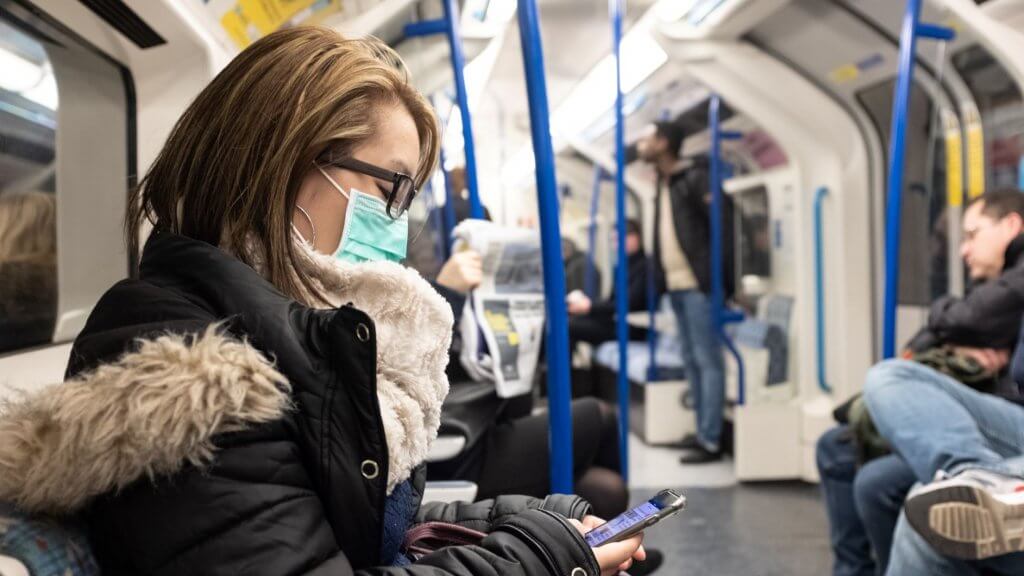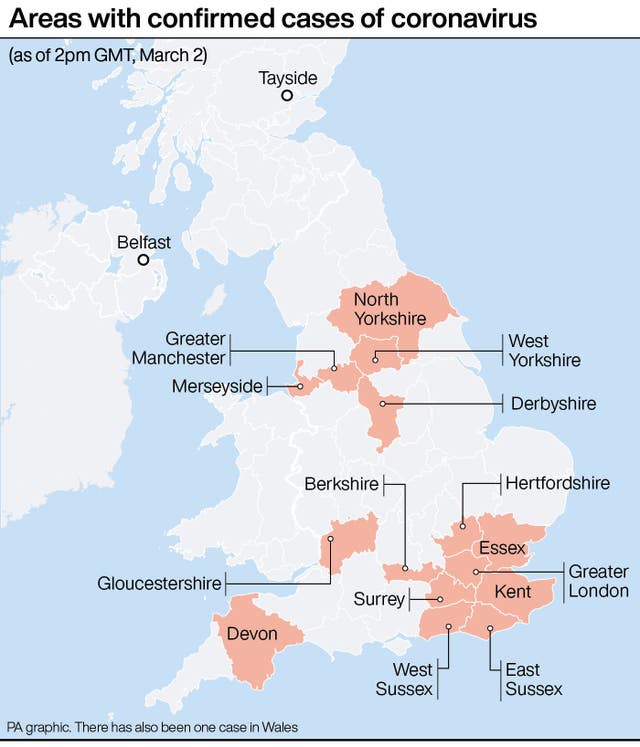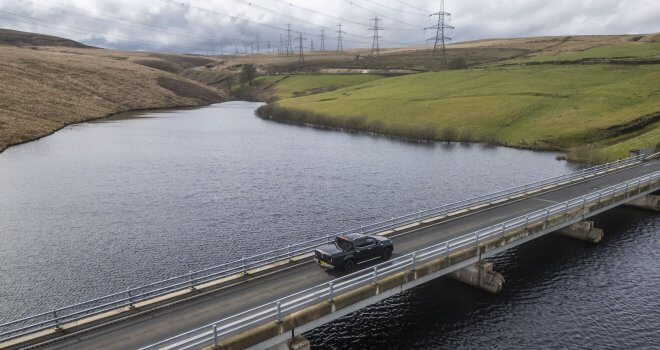UK’s Battle Plan To Fight Coronavirus To Be Revealed

The UK’s battle plan to tackle coronavirus is due to be revealed as the country prepares for the illness to spread more widely in the days and weeks ahead.
The number of people in the UK who have tested positive for the virus stands at 39.
Prime Minister Boris Johnson is due to set out the Government’s plan, vowing that officials are “ready to take necessary steps” to contain coronavirus and protect the vulnerable.
The plan, to be launched at Downing Street on Tuesday, is expected to include a “war room” to bring together communications experts and scientists from across Government and the NHS to roll out a public information campaign.
Other measures could see people discouraged from unnecessary travel, workers urged to stay at home, and retired doctors and nurses asked to return to work to help deal with patients.
It is understood that potential plans could include getting volunteers into public services to help out with things like delivering food to hospital patients.
Other measures could include cancelling events, and giving Border Force officials powers to act if they spot people with the virus.
Legislation allowing the Government to use extra powers to help control Covid-19 is expected to go through Parliament by the end of the month.
Health Secretary Matt Hancock said on Tuesday that the number of home ventilation kits is being expanded.
On whether the NHS would be able to cope if the virus reaches pandemic level, he told ITV’s Good Morning Britain: “A lot of people, not least because it is mild, will be best off at home than in hospital, so we are expanding the number of home ventilation kits that are available so that can be done.
“The NHS, of course, has a full plan for this and prepares for this even when there isn’t an outbreak.”
Mr Hancock also told BBC Breakfast that the action plan would set out measures to deal with the virus now, to delay the spread, and, if it becomes a pandemic, actions that “we might have to take to mitigate it”.
He added: “It’s quite unusual for a Government to publish a plan with things in it we hope we won’t have to do.”
Asked about the cancellation of mass gatherings such as the London Marathon at the end of April, Mr Hancock said: “It’s far too early to be able to tell in that instance.
“What we can say for sure is that, right now, we do not recommend the cancelling of mass events, and schools as well should not be closing unless there is both a positive case and the school has had the advice to close from Public Health England.
“So, right now, as long as you wash your hands more often that is the number one thing you can do to keep you and the country safe.
“And capture a sneeze or a cough if you have one and then follow the public health advice if you’ve travelled from one of the affected areas.
“Right now, that is what people should be doing and otherwise going about their normal daily life because we want to minimise the level of disruption, subject to doing the things we need to do to keep people safe.”
Mr Hancock said it is a “reality of this disease” that there are actions the “Government does not normally take and that we don’t want to take, that may be necessary to keep people safe”.
He said he understood why people may not want to shake hands, but added: “The scientific advice is that the impact of shaking hands is negligible and what really matters is that you wash your hands more often.”
Following an emergency Cobra meeting on Monday, at which ministers discussed the “battle plan”, Mr Johnson said coronavirus is “highly likely” to spread more widely.
PM @BorisJohnson gives an update on coronavirus following COBR. pic.twitter.com/u0nGTU36Yo
— UK Prime Minister (@10DowningStreet) March 2, 2020
While he has insisted the NHS is well prepared to deal with any outbreak, a doctors’ group warned there are concerns that an already-stretched health service will not cope in the event of a huge increase in cases.
The Doctors’ Association UK said just eight of 1,618 medics surveyed felt the NHS is ready for coronavirus.
Despite a forthcoming public health campaign, a YouGov poll suggested 54% of people have not been taking any extra steps to protect themselves.
Health leaders have announced an extra £1.7 million investment in the NHS non-emergency helpline to offer more clinical advice about coronavirus, and NHS England has put a new NHS 111 online service in place after a surge in inquiries.
With global markets hit by the spread of Covid-19, Chancellor Rishi Sunak is expected to use his Budget next week to outline measures to support the economy, having ordered officials to work up plans to bolster the public health response, businesses and the economy.
All the new UK cases announced on Monday were people who had recently travelled to Italy, which is experiencing the biggest outbreak in Europe.
Government sources told the PA news agency it could be “months rather than weeks” before the outbreak peaks in the UK.
In a suggestion that extra emergency powers would not be required immediately, the source said: “We don’t want to have to take decisions before we have to. As much as possible we want people to carry on with their daily lives.”
The European Commission said on Monday that the coronavirus risk level is “moderate to high” for those in the European Union and the UK.

The UK cases include a worker at the North East London NHS Foundation Trust offices at Vinters Business Park near Maidstone in Kent, a pupil from Churston Ferrers grammar school in Torbay, a teacher at Guildhall School of Music and Drama, and the parent of a pupil at a school in Stevenage.
British Airways said it has cancelled hundreds of flights in March, including from Heathrow, Gatwick and London City Airports.
Ryanair has also reduced flights on some routes, in particular to and from Italy, by up to 25% due to a drop in demand.
Globally more than 90,000 cases of the disease have been confirmed, with more than 3,000 deaths.




